On the eve of the Second World War, Captain Albert Coady Wedemeyer of the US Army attended the Kriegsakademie in Berlin. Soon after completing, in July of 1938, the two-year course for future officers of the German General Staff, he submitted a pair of reports. The first of these provided a précis of the approach that the German Army took to tactics, leadership, and organization. The second described, in considerable detail, Captain Wedemeyer’s observations of the curriculum he had followed.
The following article provides, along with explanatory notes, a verbatim copy of section of the second report called Command and Staff Functions. (Readers wishing to read complete copies of both reports can find the first in the book Wedemeyer on War and Peace and the second on the website of the Combined Arms Research Library.
The Commander
An indomitable will and broad military knowledge, combined with a strong character, are attributes of the successful leader. He must have a clear conception of tactical principles and their application.
In this realm, the word ‘character’ [Charakter] enjoys a special meaning. Rather than referring to things like reliability, work ethic, and the avoidance of vice, it describes the willingness to take decisive action in the face of uncertain information.
Only by continual study of military history and of the conduct of war with careful attention to current developments can the officer acquire the above stated attributes of leadership.
Two of the most important characteristics of a leader are ‘Initiative’ and ‘Willingness to Accept Responsibility’. ‘Procrastination’ and ‘evasion’ or shifting of responsibility' must be at all times avoided.
Here, the word ‘initiative’ [Initiative] refers to something more than a willingness to act in the absence of direct orders. Like its close cousins Entschlusskraft [‘power to make decisions’], Unternehmungsgeist [‘spirit of enterprise’], and Verantwortungsfreudigkeit [‘joy in taking responsibility’] it refers to the ability to - here’s that phrase again - take decisive action in the face of uncertain information.
Better a faulty plan or decision permeated with boldness, daring, and decisiveness, than a perfect plan enmeshed in uncertainty. The leader must strive to maintain the initiative with respect to the enemy.
Continual personal contact with [one’s] own troops is very important. The leader can thereby learn their needs and better determine their capacity to carry on. When the troops realize that he is concerned with their comforts, is taking a personal interest in their pleasures and sorrows, then will they cheerfully and willingly give their last ounce of strength to accomplish the most aggravating tasks.
The leader must personally lead his troops, carefully consider every situation, give his decision, and insure that the orders are properly distributed. His spirit and character must dominate his staff and at no time should he permit himself to fall into a subsidiary role.
The General Staff Officer
The first requirement of a General Staff Officer: Anticipate and Accomplish every possible task without appearing to do so. Further, General Staff Officers must thoroughly understand the technical and tactical employment of all weapons. To insure such understanding these officers must serve frequently with troops and experience in the field the limitations and potentialities of the various weapons. They must avoid thought of personal achievements and glories and happily recognize the success of their labors through the accomplishments and rewards of their leader and the entire command.
A most important role of the General Staff Officer is continual consideration of the future situation - anticipating every contingency and not awaiting developments of the situation. Plans for various possibilities should at all times be formulated, available for prompt inauguration.
Important Principles for a Commander
First weigh the chance of success. Then risk the chance for success.1
Put as much power in the main effort [Schwerpunkt] and as little power in the minor or subsidiary effort, as possible.
Be quick to recognize favorable situations or turn of events and promptly utilize [them] to your own advantage.
Speed and surprise can make up for considerable numerical inferiority.
Always remember to use every opportunity to refresh your troops.
The Other Articles in this Series:
For Further Reading:
The sentence echoes the famous motto of the elder Helmuth von Moltke (1800-1893): Erst wegen, dann wagen [First weigh, then wager.]


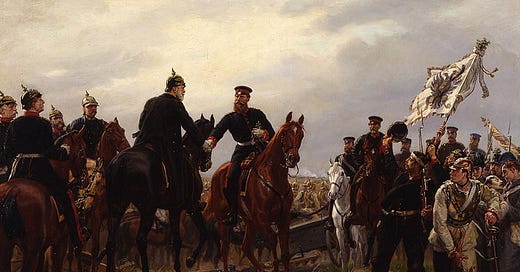



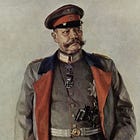
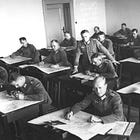
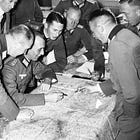

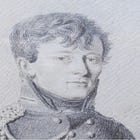

This is great material as it condenses procedures any professional military leader, staff officer or NCO should know by heart and follow. By having such well structured and extensive training programs, the Heer (Prussian, Imperial or Third Reich) ensured uniform training, procedures and outlook across the force. This gave them significant advantages at the tactical and operational levels, although it was not enough to counter the forces arrayed against them in WW I and WW II (something about not taking on too much at the strategic level and picking better allies comes to mind).
The US Army specifically, and the US Armed Forces in general, have always been leery of having a General Staff in the Prussian/German model for various reasons (suspicions of elite groups in an egalitarian society, fear of dark conspiracies, etc.), but are we well served by this? We have a number of staff officer training courses (CGSOC, SAMS, various War Colleges, Strategist courses, etc.), but I have noticed the Army does not always make the best use of the graduates, particularly from SAMS and the Strategist courses. Life is weird.
how was this actually used in german or any other nation. sounds splendid, but has anyone really used it?